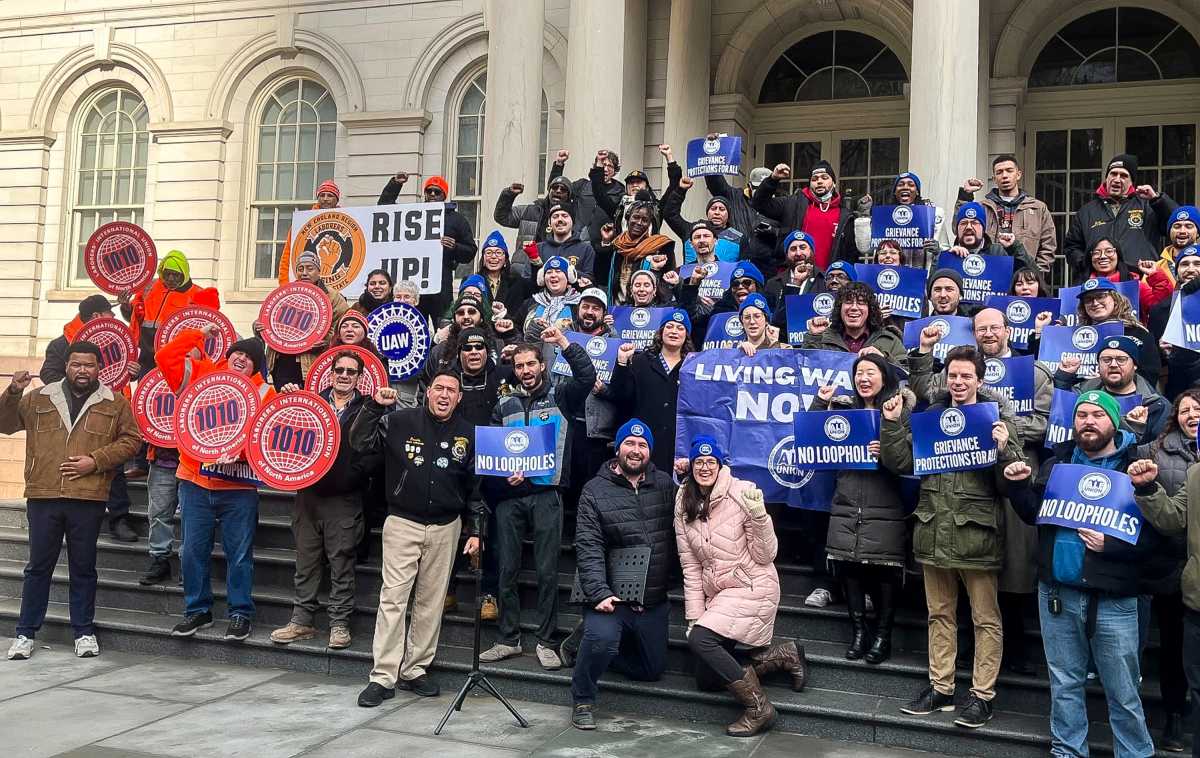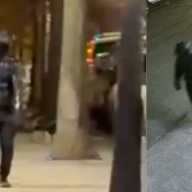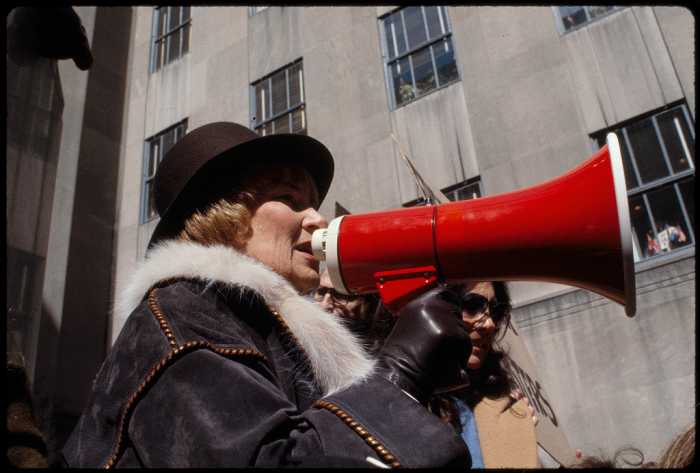By Patricia Chang
Many Chinatown shop owners have Buddhist statues in less visible parts of their stores like this red-faced Guan-Gong, sword in hand, who is supposed to protect a shop from evil.
Beyond the stalls selling steamed pork buns and knockoff handbags, the observant visitor to Chinatown can watch a telling ritual unfold. Look, in the crowded corners of shops and high on the shelves, for the little wooden red shrines, each containing a different Buddhist statue. Not meant to be seen, their presence is felt.
These wooden lacquered boxes shelter Chinese Buddhist gods, placed there by storeowners to protect their properties and ward off bad spirits. Busy shoppers often overlook them. But their importance hasn’t diminished, because shopkeepers today, as thousands of years ago, still pray to their gods daily.
You can see shrines inside Walker Pharmacy on Walker St. Amid thousands of Chinese herbal remedies, two stand near the cashier. One is nestled on the ground, surrounded by offerings: tiny cups of wine and several oranges. The other hangs near the ceiling, so high that only a glimpse of the god’s head can be seen. An idol is inside, along with a small cup of uncooked rice. Incense sticks — some burnt, some still burning — have been jabbed into the rice.
The god up high represents the heavens, and the one on the ground the earth, explained Elaine Wong, 38, who runs the cash register. She’s been lighting incense and putting out fresh offerings for the gods since she was a little girl in Asia. It’s a Buddhist family tradition, Wong says, “to [seek] blessings for health, love and all kinds of good wishes you have.”
Most Chinatown shrines honor three famous Buddhist gods, said Molly Chin, who works at the Mahayana Buddhist Temple on Canal St. As with the Greek gods, each Buddhist god has its own realm to rule. So shopkeepers offer prayers to different gods, for different reasons.
You’ll often see Guan-Yu or Guan-Gong (pronounced Goo-arn Yoo and Goo-arn Gorng) first. With his furrowed brow, long mustache and beard, and brandished sword, he stands for honesty and loyalty — an important consideration if you have many employees and a cash register nearby. Then there’s Tu-Di Gong (pronounced To Dee Gorng), the ruler and protector of the land, important to sellers of food. He’s placed on the floor, close to the earth. The realm of the goddess Guan Yin (Goo-arn Ying), is compassion and caring, often in family life. She is supposed to offer protection and good luck in personal and business life.
It’s important to fulfill the gods’ needs each day, Chin said. “Buddhism is not just a religion, it is also a way of life.”
In Wong’s shop, like most here, you can find Guan-Gong. He faces the door, to guard against trouble — and to ensure employees don’t steal or lie.
“We pray to him ultimately for protection. Every store will have him in it,” Chin said. “He is also known as the God of Police Officers. Every year in Hong Kong, the police have a big ceremony for him. He looks slightly evil at first glance [he’s a god of martial arts and war]. Before he became a god in the afterlife, he was a general in the Chinese Army,” serving under the powerful warlord Liu Bei. His story is told in the historical folklore novel “Romance of the Three Kingdoms.” He is portrayed as a fiercely loyal general who refused to be recruited to the enemy camp, even when offered all riches imaginable. When he reached enlightenment in his afterlife, he became a god.
Guan-Gong stands at the door of the Vietnamese restaurant XeLuaNhaHang Vietnam, on Mulberry St.
“He keeps away fights because, you know, sometimes at restaurants people start fighting or yelling, like gangsters,” said employee Kelly Nguyen, 27.
Next door at the Porcelain Corner Shop, salesperson Gigi Leung, 24, was preparing her prayer ritual to Tu-Di Gong, god of the Earth. She lit incense and poured rice wine into tiny cups until they were almost overflowing. Then she chose an offering of oranges.
“My boss and I pray every morning and every night for protection, and for our dreams to come true,” she said. “We also pray for good health and good family.”
No other time are these prayers more important than during the Lunar New Year. Families and shopkeepers alike pray for a safe and prosperous year, ridding the new year of any negativities from the past year. More offerings of fruit, wine and traditional Chinese sweets are placed in front of Tu-Di Gong as an effort to please him and hope for his protection in return.
You’ll find Tu-Di Gong at fish markets, because he is meant to protect the fish, ensuring a good catch. Without his blessing, Leung said, shopkeepers can’t even open their stores. It is his land they are using, and his permission they require.
The Porcelain Corner Shop sells shrines and statues of the gods. In back, there’s a much larger shrine to Guan Yin. Leung has asked for protection on long trips, and for luck in her career.
Buying a statue doesn’t automatically guarantee you a god’s protection.
“You can’t just go to our store and buy it,” Nguyen warned. Buyers must take statues to the temple, to receive the priest’s blessings, and usually leave them there for some weeks to accumulate blessings. Buddhists believe that the longer statues stay at the temple, the more power they will bring their owners. In Chinatown, a Buddhist priest will pray to the icons every day, and offer them wine and fruit. When shopowners feel it is time, they’ll retrieve their statues, and place them in their rightful locations.
And that’s where discerning visitors can see them today.
Read more: Upper East Side School Sued for Unsafe and Unsanitary Conditions



































